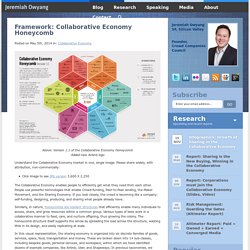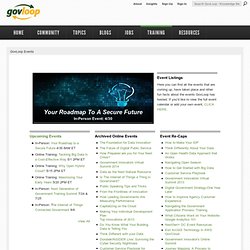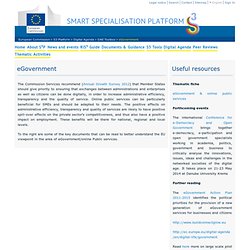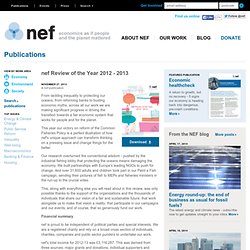

Framework: Collaborative Economy Honeycomb. Above: Version 1.1 of the Collaborative Economy Honeycomb Added new Airbnb logo Understand the Collaborative Economy market in one, single image.

Please share widely, with attribution, non-commercially: Click image to see JPG version 3,600 X 2,250 The Collaborative Economy enables people to efficiently get what they need from each other. People use powerful technologies that enable Crowd-funding, Peer-to-Peer lending, the Maker Movement, and the Sharing Economy. Similarly, in nature, honeycombs are resilient structures that efficiently enable many individuals to access, share, and grow resources within a common group. In this visual representation, the sharing economy is organized into six discrete families of goods, services, space, food, transportation and money.
The companies listed in this graphic are just a small representation. Notable Industry Stats: The crowd is becoming like a company. Sociale innovatiefabriek. The Collaborative Organization: A Strategic Guide to Solving Your Internal Business Challenges Using Emerging Social and Collaborative Tools:Amazon:Books. Events. GovLoop Events View the Full Event Calendar or Add Your Own by Clicking Here.

Did you know GovLoop has a training rewards program? Learn more here. Awesome 6 members like this Share Twitter Facebook © 2014 Created by GovLoop. Climate Change. S3 Platform - eGovernment. The Commission Services recommend (Annual Growth Survey 2012) that Member States should give priority to ensuring that exchanges between administrations and enterprises as well as citizens can be done digitally, in order to increase administrative efficiency, transparency and the quality of service.

Online public services can be particularly beneficial for SMEs and should be adapted to their needs. The positive effects on administrative efficiency, transparency and quality of services are likely to have positive spill-over effects on the private sector's competitiveness, and thus also have a positive impact on employment. These benefits will be there for national, regional and local levels. To the right are some of the key documents that can be read to better understand the EU viewpoint in the area of eGovernment/online Public services. Liquid Democracy to reinvigorate decision making - ICANN Strategy Panel: Multistakeholder Innovation - by IdeaScale. s3platform.jrc.ec.europa.eu/c/document_library/get_file?uuid=a39fd20b-9fbc-402b-be8c-b51d03450946&groupId=10157.
S3 Platform - eGovernment. Sinnergiak. UK Government reforms Internal Communication. Alex Aiken, Executive Director of Government Communications at the UK's Cabinet Office has launched a centralised Government Communication Service.

He talks exclusively to simply-communicate about the huge implications for internal communication. Yesterday Alex Aiken, the Executive Director of Government Communicaitons at the UK's Cabinet Office announced the biggest shake up of government communications since the dismantling of the Central Office of Information (COI). Previous reforms have tended to focus on how the Government spends millions of external advertising campaigns. What is new about these changes desgned "to professionalise government communications" is that Aiken has put internal communication at the heart of some radical changes.
"It will mean there is a single body for government communications. Aiken announced the 11 strands that make up the reforms and stressed that internal is one of the most important. Volume 9, number 3, December 2013 - Special Issue: Facilitating multi-stakeholder processes: balancing internal dynamics and institutional politics - KM4Dev Wiki. Knowledge Management for Development Journal - Call for PapersVolume 9, Issue No. 3, December 2013 Facilitating multi-stakeholder processes: balancing internal dynamics and institutional politics The Knowledge Management for Development Journal (KM4D Journal) is a peer-reviewed, community-based journal on knowledge management for development – for and by development practitioners, researchers and policymakers. The journal is closely related to the KM4Dev community of practice [www.km4dev.org] and is available at: Volume 9, Issue 3, to be published in December 2013, will focus on facilitating multi-stakeholder processes within knowledge management for development (KM4D).
The Guest Editorial team for this issue comprises Ewen Le Borgne, Karen Buchanan, Herman Brouwer, Jan Brouwers, Laurens Klerkx and Miriam Schaap Rationale This issue In this special issue we wish to advance our thinking about multi-stakeholder processes. Guidelines for authors are available on the journal’s website: [1] Papers. Willkommen bei Adhocracy! - Adhocracy.
Nef Review of the Year 2012 - 2013. Nef Review of the Year 2012 - 2013 November 27, 2013 A nef publication From tackling inequality to protecting our oceans, from reforming banks to busting economic myths, across all our work we are making significant progress in driving the transition towards a fair economic system that works for people and for the planet.

This year our victory on reform of the Common Fisheries Policy is a perfect illustration of how nef's unique approach can transform thinking on a pressing issue and change things for the better. Our research overturned the conventional wisdom - pushed by the industrial fishing lobby that protecting the oceans means damaging the economy. Financial summary nef is proud to be independent of political parties and special interests. Guides for Government. Open source solutions for government.